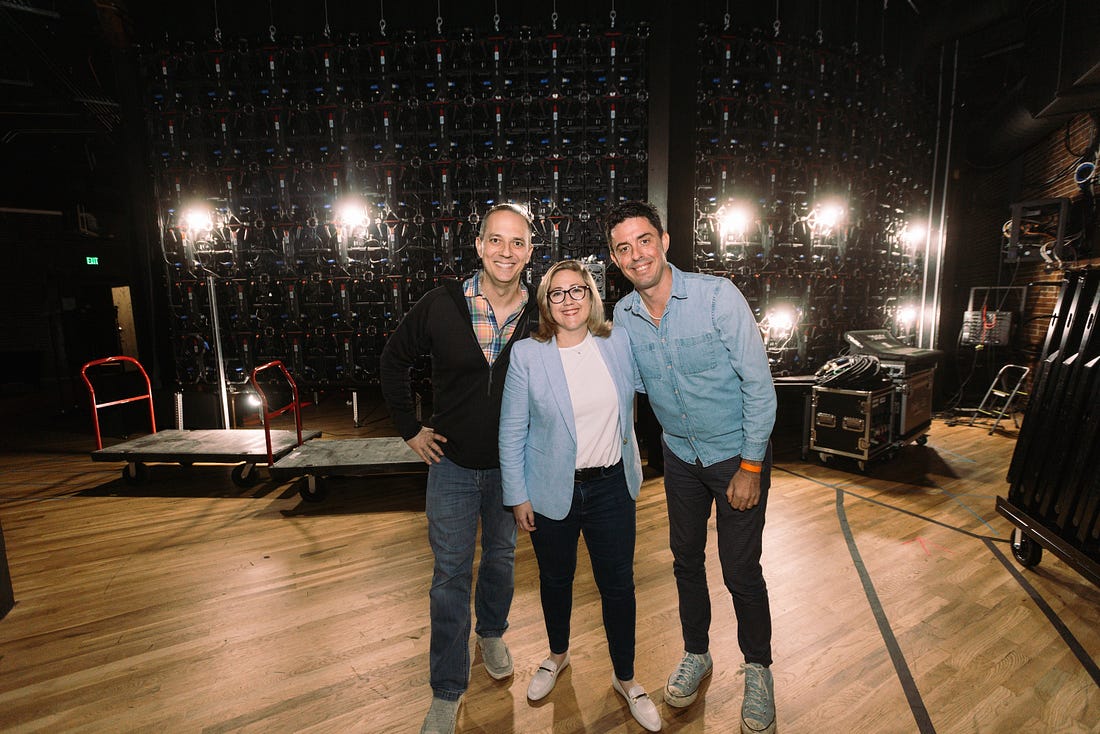|
 |
1. Thank You
Yesterday we crossed 100,000 paid members of Bulwark+. I want to talk about this, which is self indulgent. I hope you’ll hear me out.
A hundred thousand is a magic line in the magazine world.¹ I came up in the universe of small political magazines—the Weekly Standard, the New Republic, National Review, the American Prospect, Mother Jones, Commentary, the Public Interest—and 100,000 subscribers was always the absolute outer limit for these books.
If events were in your favor and you had the budget for a big direct-mail campaign, then you could touch 100,000 subscribers. Maybe. But no one lived at that altitude and everyone involved in the business understood that you could not be high-minded and get to 100,000 subscriptions in a sustainable way. To live above that tree line, you had to be Us Weekly.²
When we started Bulwark+ I set our target at 10,000 members. Our stretch goal was 12,000. I remember a meeting with Sarah Longwell where she said she wanted us to get to 25,000. I laughed.
Later, when we were around 36,000 members, Adam Keiper mentioned reaching 50,000 members. I told him—I believe these were my exact words—“Get that number out of your head because it’s not going to happen. It can’t happen. There is a limit to the audience for a publication like ours.”
My mistake was that I fundamentally misunderstood what The Bulwark was. This is not a publication. It’s a community.
Magazines don’t have communities.³ They have readers.
The magazine comes out once a week, or month, or quarter. The reader picks it up. Maybe, every once in a while, the reader sends a note to the author of one of the articles. And that’s that.
You get this newsletter in your email every single day. You talk to each other in the comments. Many of you know each other’s stories, or look out for specific people in the comments, because you want to hear from them.
If you hit reply to the email, it comes to me. I try my best to answer as many emails as I can. In this way I have become friends—actual, real-world friends—with a great many of you.
You listen to Bulwark podcasts when you’re driving, or running, or in the shower, or doing laundry. When you watch videos of us, we’re not wearing TV makeup. We’re not polished. You don’t get an idealized version of us. You see us as we really are. I put a kid to bed, then I walk downstairs, pull on my Phillies hat, and talk to you. You get the same JVL that my friends and family get.
And that’s the fundamental difference between The Bulwark and every other media entity I’ve been a part of. There’s no artifice, no veneer, no conventions.
It’s the real real.
We don’t do kabuki theater. We don’t play angles. We don’t publish bullshit source-development pieces. We don’t retreat to calling balls and strikes, as if we’re disinterested umpires in a game between two equal sides.
We are open. This is a unique moment in American history. It’s dangerous. There is an ongoing authoritarian attempt. We are on the side of democracy.
Period. The end.
It turns out that just by being open in this way, we sent up a flare to others like us. People who didn’t have answers but knew that the moment required something new.
People who knew that it would take a lot of us, banding together.
It will never stop being funny to me that you guys understood what The Bulwark could be—what The Bulwark needed to be—before I did.
Thank you for that, my friends. And for everything else.
2. Open
If you’ve ever wanted to be part of this thing of ours, I hope you’ll do it. Like right now.
If you haven’t joined because of money stuff, that’s okay. Just hit reply to this email and we’ll work something out. Everyone who wants to be part of The Bulwark gets to join. One of the reason members pay is so that they can cover costs for those who, for whatever reason, can’t swing it.
I am not, by nature, a joiner. And yet this has been the most satisfying experience of my career. I think you’ll find it valuable, too. On a very deep level. Like I said: It’s not a magazine subscription. It’s something much bigger.
3. Vows
I want to reiterate some promises.
We will not always be right. But when we’re wrong, we’ll be honestly wrong.
We are always transparent. We tell you what we think. No pretenses; no masks; no role-playing.
